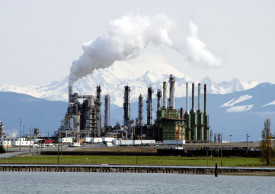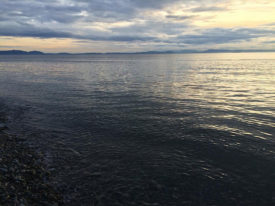Recently, the most surprising thing happened to wildlands conservation in Washington: Republican congressman Dave Reichert announced that he would seek a large addition to the Alpine Lakes Wilderness—somwehere on the order of 30,000 acres. (Coverage here and here.)
Not only was I surprised to hear of the announcement (for reasons I’ll get to in a moment), I was surprised at the reaction. First, P-I columnist Joel Connelly warmly praised Reichert’s initiative in a blog post. But then David Goldstein and presumptive challenger Darcy Burner attacked Reichert for playing politics, and Goldstein lambasted Connelly too. Today in his column, Connelly responds.
Connelly’s response is fine as far as it goes (it’s mostly about toning down the hyper-partisanship that’s infected politics). But I would have taken a different tack. Let’s suppose for a moment that Reichert really is just a cynic, trying to burnish his environmental record. (And Reichert’s environmental record does need burnishing, as Goldstein rightly points out.) Let’s say further that the wilderness proposal is a crass ploy to look green. Because if that’s the case, well then…
Uh, er, well… if that’s the case, then we still end up with tens of thousands of acres of new wilderness. And this addition isn’t rock and ice territory, the kind of low-economic-value, easy-to-preserve acreage that comprises much of the world’s wilderness. The land Reichert’s talking about is mostly rich lowland forest, complete with streams and wetlands. And it’s very close to the burgeoning Puget Sound megalopolis. In short: it’s awesome.
So whatever Reichert’s motivation may be—and I really don’t care—I’m happy to see the proposal. If you’ve followed Northwest conservation for almost any length of time, you’ll know that it wasn’t terribly long ago that when officials played politics with public lands, it meant firing up chainsaws. Or worse. But things have changed apparently. So if playing politics now means granting permanent wilderness protection to forest and streams then, golly, I want our electeds would get down to business and start playing politics.
Update: Over at Signpost, Andrew Engelson has more detailed commentary on the proposal.








Jonathan Mark
I don’t quite get it… I still hear chainsaws in the debate over the Roadless Areas Protection Act, affecting 2000 times as much land as the proposed Alpine Lake addition.Maybe there are contrasting frames here, of outdoor adventure vs. preventing habitat destruction… how much more do we care because the land is close to the burgeoning megalopolis?I agree with Burner bringing up the big picture (and she does applaud Reichert for his proposal).
Matt Stevenson
I completely agree with you Eric—this is indeed awesome. I did the mapping and analysis for the proposal (although the P-I hacked my map and did not give any credit!!), and I have to say it felt really weird working for a Republican Congressman. But, like you, I don’t really care what his motivations are, the Pratt River valley is truly a fantastic resource and by all accounts this proposal should make it all the way through the process.
Abigail Shilling
The statement that Congressman Reichert has not supported the “roadless rule” is incorrect. In 2006 there was a vote in the House of Representatives on that very issue and Reichert was one of only 27 Republicans to vote for the Inslee amendment to HR 4200 (109th Congress), the Forest Emergency Recovery and Research Act, to exempt any provision in the underlying bill from being applicable to any inventoried roadless area within the National Forest System, set forth in the maps contained in the Forest Service Roadless Area Conservation, Final Environmental Impact Statement. Essentially, what this means is that HR 4200 would have allowed unanalyzed salvage timber sales and new road building in roadless areas and Inslee’s amendment would have stopped this, essentially putting an end to it. Reichert voted with Inslee to deny those funds—and therefore in support of the “roadless rule.” Reichert also voted with a majority of Democrats against the overall bill, protecting national forests from industrial logging after a windstorm or fire. The legislation passed the House but was not considered by the Senate. Finally, Reichert again bucked his party and voted to stop road building in the Tongass National Forest in Alaska. Just wanted to correct the record.Abigail Shilling, Press SecretaryCongressman Dave Reichert